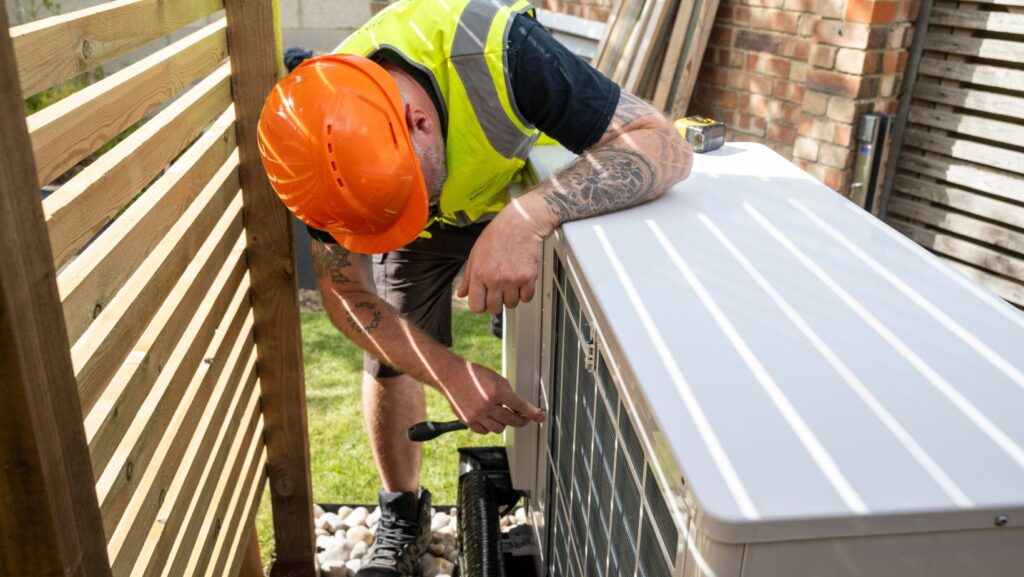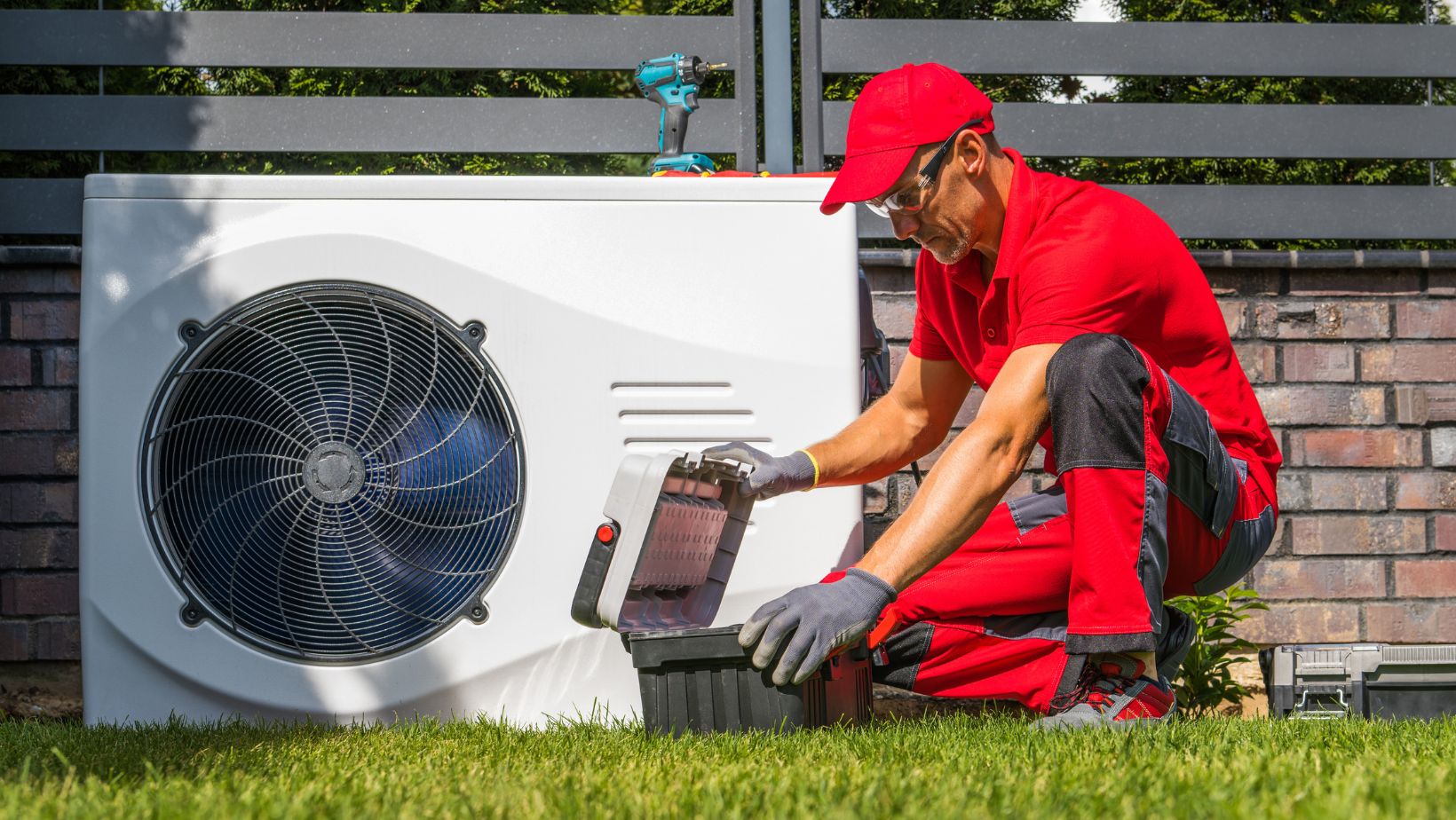When your heat pump starts showing underperformance, your home comfort is likely to suffer—and fast. These systems are known for their energy efficiency and ability to heat and cool spaces throughout the year. However, even a well-maintained heat pump can develop issues that reduce effectiveness. It might be time to pay attention if you’re noticing a drop in comfort levels, strange noises, or rising energy bills. While some minor concerns can be addressed with basic maintenance, other problems require professional help. We will explore clear signs that indicate it’s time to call an HVAC contractor for your heat pump, helping you avoid further complications and restore comfort to your living space. If your system is beyond basic troubleshooting, scheduling a heat pump installation in Columbus, OH with a trusted HVAC professional can ensure your home’s comfort and energy efficiency are quickly restored.
Contents
Table of Contents
ToggleWhen to Seek Help for a Failing Heat Pump
Constant Cycling or Inconsistent Temperatures
One of the earliest signs that your heat pump is not functioning correctly is when it begins to cycle on and off frequently, also known as short cycling. Normally, a heat pump should operate in cycles that last several minutes to maintain a consistent indoor temperature. When it begins to turn on and off rapidly, it not only indicates a possible problem with the thermostat or control board but also leads to increased wear and energy consumption. If you’re noticing this issue in your system, a trusted resource like https://www.veteransheatingandcooling.com/ can help assess the cause and offer dependable solutions to restore stable performance.
Similarly, if certain rooms are too hot while others remain cold, the system may struggle with airflow or refrigerant balance. This inconsistency could point to deeper issues like a failing compressor or ductwork leaks. While these symptoms might not seem urgent initially, allowing them to persist could cause long-term damage. An HVAC contractor should be contacted before the situation worsens, leading to higher repair costs or complete system failure.
Unusual Noises Coming From the Unit
Heat pumps are generally quiet, so any strange or sudden noises from the unit should be taken seriously. Grinding, banging, hissing, or squealing noises often indicate mechanical problems that need professional intervention. For example, grinding sounds may suggest that the motor bearings are wearing down, while a hissing noise could indicate a refrigerant leak. A rattling sound might mean loose components, and a high-pitched squeal could be a belt or fan motor issue.
All these noises indicate internal problems that can quickly escalate if ignored. While it might be tempting to investigate the issue yourself, opening the unit without proper training could void warranties or lead to safety hazards. It’s far safer to contact an HVAC contractor who can identify the root cause of the noise and provide the appropriate repair. Acting early could save you from a complete breakdown and restore peace and quiet to your home.
Sudden Increase in Energy Bills
A noticeable spike in your energy bill without any major change in usage is another red flag that your heat pump might be struggling. Heat pumps are known for being energy-efficient, but when they start consuming more electricity than usual, there’s likely an issue causing them to work harder than necessary. Problems such as dirty coils, low refrigerant levels, or malfunctioning sensors can all cause your heat pump to run inefficiently.
Additionally, older systems may lose their efficiency due to age and wear. If you’ve been keeping up with regular maintenance but still see an unexplained rise in energy costs, a professional must inspect the system. A trained technician can evaluate the unit, check for hidden issues, and suggest either a repair or a more energy-efficient solution if the system is nearing the end of its lifespan. Ignoring high energy bills can lead to even higher expenses over time, so prompt attention is crucial.
Ice Buildup or Water Leaks Around the Unit
If you start seeing ice forming on your heat pump during winter—or worse, during warmer months—that’s a definite sign that something is wrong. Ice buildup often indicates airflow problems or refrigerant issues preventing the unit from functioning properly. Sometimes, a dirty filter or blocked vents might be the culprit. Still, if those have already been addressed and the problem persists, it likely points to a malfunctioning defrost cycle or refrigerant imbalance. Water pooling around the base of the indoor unit could also be a symptom of a clogged condensate drain or a leaking coil.
Both issues can lead to more serious damage if left unchecked, including electrical complications or mold growth around the unit. This is the kind of problem that shouldn’t be handled on a DIY basis. An HVAC contractor will have the tools and experience to diagnose the issue accurately and perform repairs that ensure long-term efficiency and reliability of your system.
Your heat pump is key in maintaining year-round comfort and energy efficiency. It’s important not to ignore the warning signs when it begins to show signs of trouble, whether through unusual noises, higher energy bills, poor airflow, or inconsistent performance. Timely intervention prevents minor issues from becoming major repairs and ensures that your home remains a comfortable and cost-effective environment. Don’t wait for your system to break down completely before seeking help; catching the problem early will save time, money, and stress in the long run.


